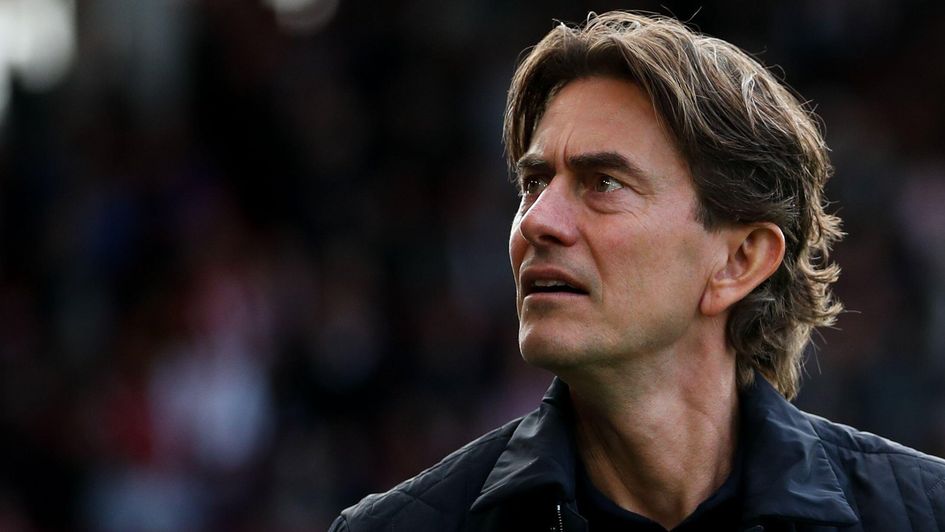In their last four league games, Brentford have scored within the first minute. That includes goals away at Manchester City and Tottenham.
The Bees have always been one of the Premier League’s most innovative and adaptable clubs, coming up with new methods each season to find an inventive method to strike.
In 24/25, it’s through kick-offs.
Manchester United vs Brentford (Sat Oct 19th, 15:00)
Previously Brentford were deadly from set-pieces and long throw-ins.
Former players abilities were maximised. Ivan Toney’s aerial prowess coupled with David Raya’s kicking meant Brentford going ‘long’ was less in hope and more in expectation as a formulated method to quickly and directly launch attacks.
Toney would, of course, win an astounding amount of headers.
Commanding the air meant Brentford could avoid players and get the ball into attack quicker with Toney finding a team mate with a flick-on.
Toney and Raya have gone but, as usual, Brentford have moved with the times.
Looking at the club's previous set-piece coaches makes for impressive reading; they’ve been able to find the diamond set-piece coach in the rough before a big club pinches them.
Gianni Vio transformed Antonio Conte’s Tottenham into goal machines from corners. Nicolas Jover is working wonders at Arsenal. Chelsea paid close to £1m for Bernardo Cueva to come to Stamford Bridge before the season began.
All three coaches were unearthed by Brentford and now, former Premier League player turned coach Keith Andrews is leading the latest imaginative strategy in the Bees’ tactical evolution.
It is certainly worth unpacking what exactly Brentford are doing from kick offs that is yielding success.
Committing men forward
Right from kick off, Brentford go on the front foot.
Once a centre-back in Ethan Pinnock, or even the goalkeeper, get the ball played back to them, they launch it into the opponents half and commit as many as seven or eight players up the pitch in an NFL-esque manner.
By doing this, it immediately catches teams out. Instead of patiently building out from the back and inviting opponents onto them like most teams in the league, the opponents are under pressure from minute one.
It’s difficult to play against because you’re dealing with a ball launched in the air. Even if you win an aerial duel (which Brentford are very good at) you can’t control where the ball is going to land.
The amount of men Brentford commit also means that there is always a player to quickly pounce on the loose ball and regain possession and at this stage in the game where it’s minute one or two, players aren’t acclimatised to the game, catching them cold.
The high volume of Brentford players means they can quickly pounce on a loose ball and regain possession. At this stage in the game where it’s minute one or two, players aren’t acclimatised to the game, catching them cold.
It’s brave to commit many players up the pitch, but it’s clearly a strategy used to get the ball wide as quickly as possible to cross.
It’s salient that astoundingly, every single goal scored early for Brentford came from a cross. Against West Ham, they crossed the ball three times in the space of 20 seconds before it fell to Bryan Mbeumo to hit home on the half-volley.
The goal against Manchester City came when both Mbeumo and Yoane Wissa attempted to work the ball wide. When they did, a cross to the back post allowed Keane Lewis-Potter to head the ball back for Wissa to score.
The players committed in an opponent’s half compete for the ball launched up to them, there job is to make sure the ball is played wide ready for a cross because there’s so many numbers in attacking areas, it makes Brentford dangerous.
Keeping the ball alive
Brentford’s ability to win and hop on second balls quickly has been essential to their success at scoring early.
When the ball is launched up to Kristoffer Ajer, it falls to a Tottenham player but because Mikkel Damsgaard is quickly pressing from behind, they quickly win the ball back and can send it wide.
The players that dart forward to attack aren’t just there to try and win the ball in the air, they are there to ensure that whenever it drops loose they keep the move alive by winning their duels.
Brentford are aware they are attempting to strike early when the opponent least expects it, so keeping the ball in play and retrieving it quickly keeps the attack going and the move alive.
It gives the players extra emphasis to be first to each ball.
Mbuemo’s goal against West Ham comes because, at the back post, Fabio Carvalho is more alert and beats Aaron Wan-Bissaka to head the ball back into the forward's path.
It’s all about making sure the opponent remains under pressure, playing in their own-half and forcing them into duels and challenges they shouldn’t normally face so early into the game.
If you are always attempting to get the ball into the other half as quickly as possible, you’re forcing them into making defensive actions.
As with most tactics at this stage of the season, the key will be to see how Brentford tweak or change this as the campaign goes on.
Now that opponents are aware of their excellent ability to catch them off guard early in games, it will be fascinating to see how others prepare, what they do differently and at some point whether it could possibly backfire.
For now, Brentford have found yet another successful method to score by thinking outside the box.
More from Sporting Life
Safer gambling
We are committed in our support of safer gambling. Recommended bets are advised to over-18s and we strongly encourage readers to wager only what they can afford to lose.
If you are concerned about your gambling, please call the National Gambling Helpline / GamCare on 0808 8020 133.
Further support and information can be found at begambleaware.org and gamblingtherapy.org.
